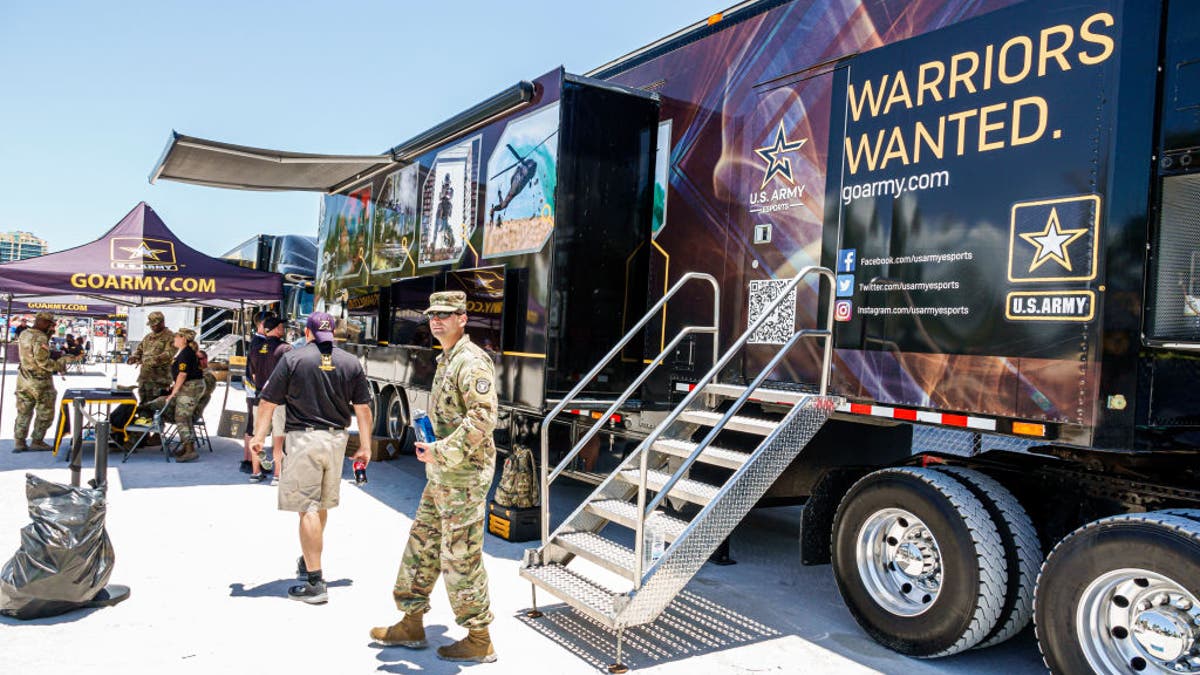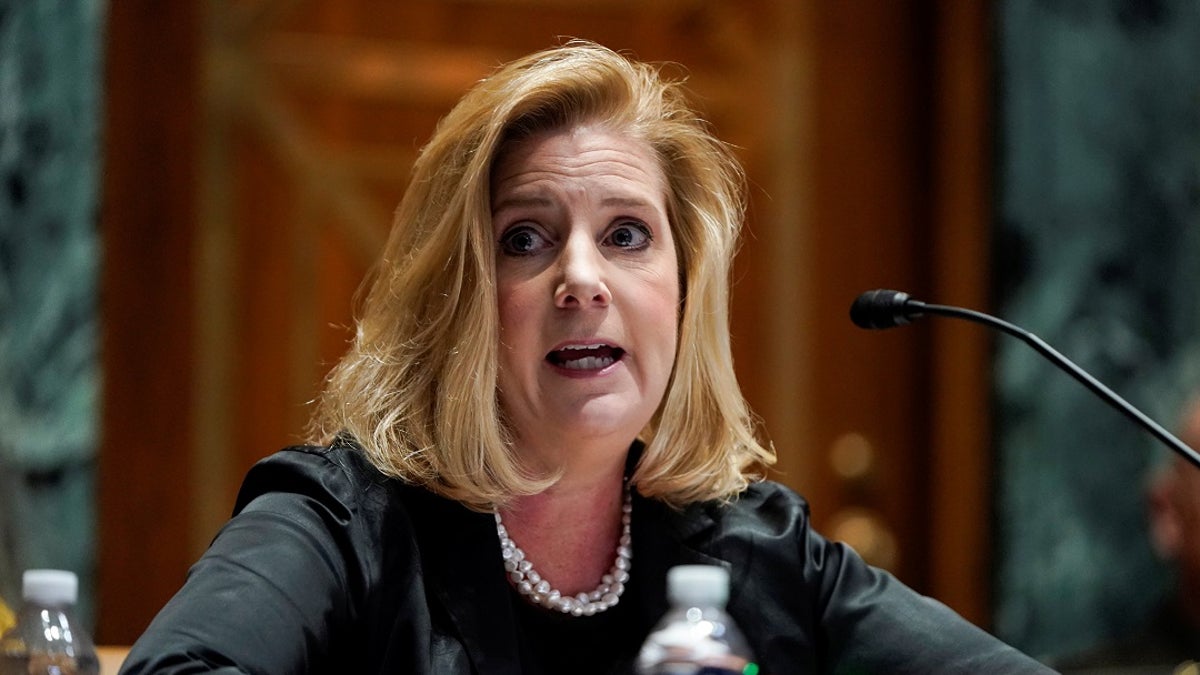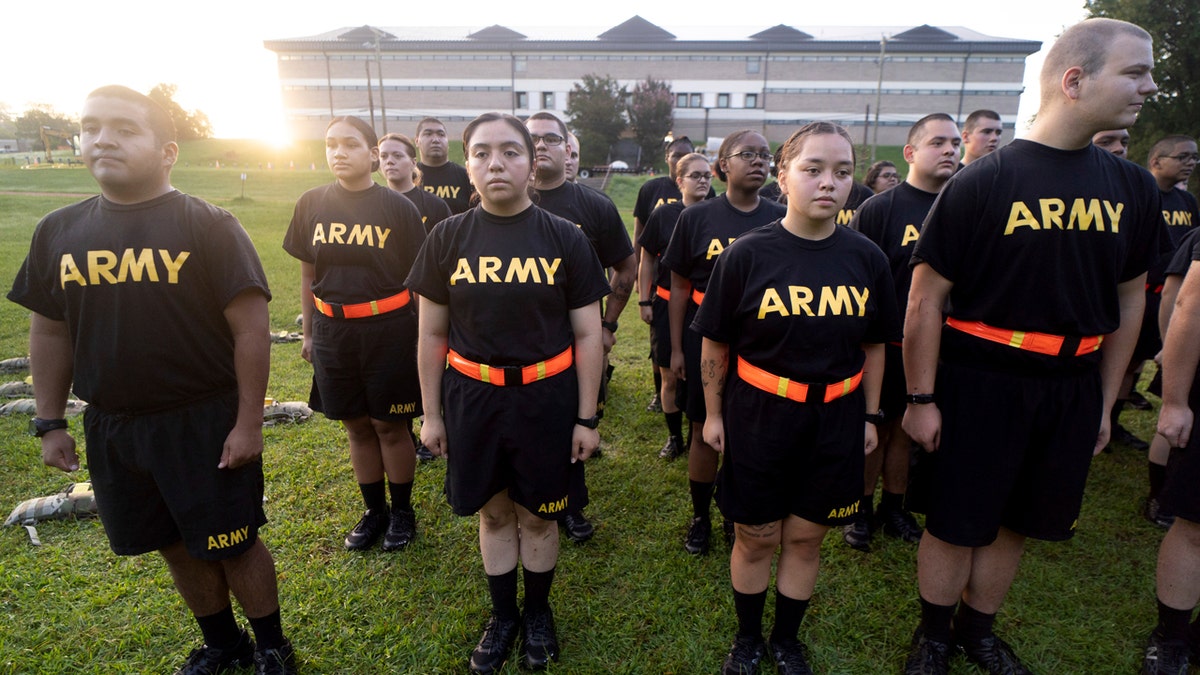James Jeffrey: Woke politics’ not a ‘major issue’ in military recruiting
Former U.S. Ambassador to Iraq James Jeffrey discusses the Army training crash that left one dozen soldiers dead and the recent challenges the military has faced in recruiting new service members.
The Army announced a new plan to open up a career field entirely dedicated to recruiting, a plan it hopes will help combat a recruiting crisis that has now plagued the branch for multiple years.
"The competition for talented Americans is fierce, and it is fundamentally different than it was 50 or even 20 years ago," Secretary of the Army Christine Wormuth said during a Pentagon news conference Tuesday. "Understanding that reality is key to designing new practices that will make us a more attractive and compelling career choice for young Americans."
Wormuth's comments came as she unveiled a complete overhaul of how the Army plans to recruit, adding a dedicated recruiting military occupational specialty (MOS) designed to be a permanent career for Army recruits instead of the temporary assignment currently being manned by an assortment of the Army's noncommissioned officers.
ARMY MAKES PROGRAM TO SHAPE UP OVERWEIGHT RECRUITS PERMANENT AS IT FIGHTS ONGOING RECRUITING CRISIS

Army recruiting event in Miami Beach, Florida. (Photo by Jeffrey Greenberg/Universal Images Group via Getty Image)
The new career field will be rolled out as a pilot program in the next few months, Wormuth said, with the new MOS listed as 42T, talent acquisition specialists.
The plan is a stark departure from the current 79R recruiter MOS, which is filled by noncommissioned officers who already have multiple years of Army experience and are only temporarily serving as recruiters, usually for terms between three and four years, before eventually going back to their original MOS.
The move comes as the Army has once again missed its fiscal year recruiting goals, falling roughly 10,000 soldiers short of meeting the mark in 2023. While the year was an improvement over 2022, when the Army fell 15,000 recruits short, it became clear to leaders that a fresh approach was needed to tackle the future of Army recruiting.
"It was evident, I would say, months ago, that we were going to have to make some more transformational changes," Wormuth told reporters during the briefing. "That just continuing to sort of have the same approach but do it better and harder was not gonna get us where we need to be if we're gonna get our end strength back up again and get to a place where we can reliably recruit more than, ideally, 60,000 young Americans a year."
Army recruiters have long complained about the complications of the current recruiting structure, which forces them to learn both how to market the Army and navigate the enlistment process, shortening the amount of time they proficiently are able to service in the role.

Secretary of the U.S. Army Christine E. Wormuth testifies during a Senate Appropriations Subcommittee on Defense hearing. (Reuters)
Dakota Wood, the senior research fellow for defense programs at the Heritage Foundation, told Fox News Digital that a dedicated recruiting force could help the Army being to reach its goals, though he noted such a program could also come with drawbacks.
"The Army is saying if we professionalize our force, find people who are really good at this by personality and energy level and the ability to connect, and that's what they do for a living, then maybe that produces better results," Wood said. "The potential problem with that is that your recruiters will increasingly be less able to draw from personal experience in the Army."
Wood pointed out that one of the benefits of having experienced recruiters who have served in various roles throughout the Army is that they can educate potential recruits about the military lifestyle they are committing to, something a dedicated recruiter who has not served in the regular Army would be less likely to be able to do.
One way to alleviate such a concern, Wood said, would be to blend the two recruiting forces together, drawing experienced NCOs from the regular Army to recruiting roles that supplement the full-time recruiting force.
"You could have that operation experience that mitigates potential concerns a potential recruit might have about joining the Army," Wood said. "Mixing into that professionalize force these experienced NCOs, that would be a dynamite idea."
The new recruiting program comes as the Army has rolled out other initiatives in an effort to combat the recruiting crisis, including a pre-basic training course that allows potential recruits who do not yet meet the Army's physical fitness or aptitude standards to enlist into the course and gives them 90 days to reach the standard before starting basic training.
The course, dubbed the "Future Soldier Preparatory Course," has been hailed a success by Army leaders and is set to move from a pilot program to a permeant fixture this month. According to data released by the Army earlier this year, over 10,000 recruits had attended one of the two tracks of the course, with 95% of those soldiers moving on to attend basic training.

Students in the new Army prep course stand at attention after physical training exercises at Fort Jackson in Columbia, South Carolina, Aug. 27, 2022. (AP Photo/Sean Rayford)
CLICK HERE TO GET THE FOX NEWS APP
Wood believes the combined approach is a valuable one for the Army, noting that the recruiting environment will only become more difficult in the coming years.
"It enables the Army to connect with populations and society in a way that is really important," Wood said, noting that the size of the Army has become drastically smaller over the last couple of decades, making the general population less familiar with those who serve. "These programs that get service personnel out into the communities… that's a very good thing, a very positive thing."










































